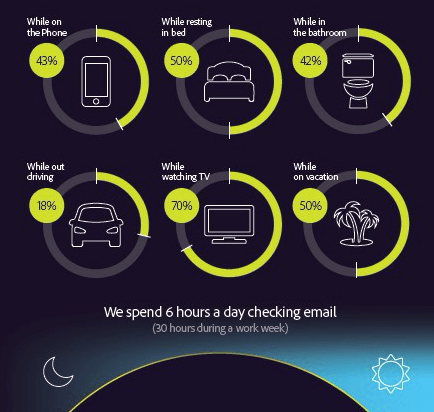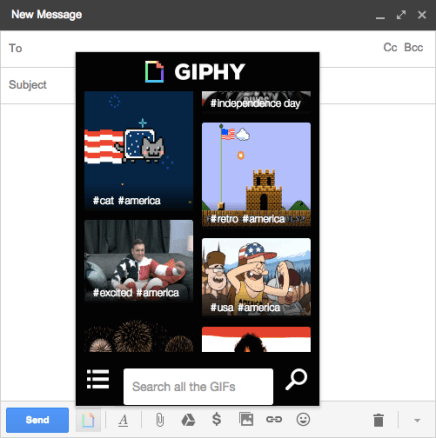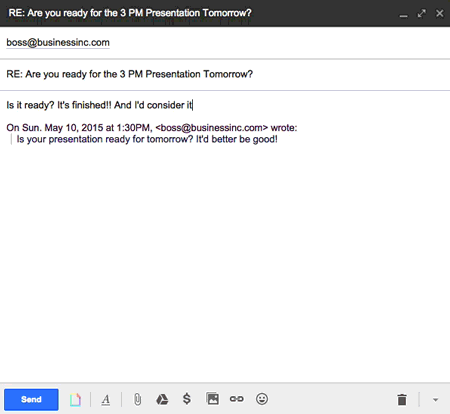
【抄訳】
Mozilla Foundationは今後、Firefoxブラウザにより焦点を絞って力を注ぎ、Google Chromeなどのコンペティタからシェアを奪い返す努力を強化したい意向のようだ。Mozilla自身が確認した会長Mitchell Bakerの今日(米国時間11/30)の全職員宛てメモによると、メールクライアントThunderbirdをMozillaから完全に切り離したい、という。チャットやNNTPニューズ機能もあるこのメールクライアントは、すでに2012年にMozillaによる直接のアップデートを停止していた。
“Thunderbirdは、Mozillaの開発系から分離し、場合によっては、Mozillaの技術への依存からも解放された方が、より強力になれると信ずる”、Mozillaのパブリックガバナンスフォーラムに公開されているBakerのメモはこう述べている。“その現在のあり方は不安定であり、われわれとしては、ThunderbirdとFirefoxの結合関係のない未来への移行を、積極的に検討すべきである”。
Thunderbirdを独立のオープンソースプロジェクトとして切り離すのか、それとも、この大きな里子を引き受けるビジネスパートナーを探すのかについてBakerは明言していないが、それはまだ時期尚早な話題だろう。
むしろここで明らかなのは、Firefox再活性化戦略の一環として、Mozillaの組織体制をスリム化し、焦点を絞りたい、という意志だ。そしてその観点から見ると、Thunderbirdはお荷物に感じられる、Bakerの言葉では“まるで税金を払っているようだ”、となる。Mozillaとしては今後、全力をFirefoxに注ぎたい。
“一つの組織内に、その技術力に対する、競合する複数の需要があることは、どちらのプロジェクトにとっても良くない”、と彼女は書いている。“Thunderbirdを担当している技術者たちはいつも、FirefoxのWeb関連の変化に合わせる努力をしなければならない。一方Firefoxやそのほかの関連プロジェクトを担当している技術者は、ときどきどうしても、Thunderbirdの面倒を見なければならない状況を抱えるが、そんなときでも、どこまでThunderbirdに深入りすべきかという迷いを抱える。どちらの技術陣も、自分の仕事にとって最良の条件を確保できない”。
Mozillaが2012年にThunderbirdの開発サポートの大半を切り離して以降、Thunderbirdにはどことなく、古いソフトウェアというイメージがつきまとっていた。
Thunderbirdがローンチした2004年には、デスクトップのメールクライアントソフトからメールサービスにアクセスすることが、コンピュータユーザのいちばん一般的な慣行だった。Thunderbirdはローンチ後の10日間で100万回ダウンロードされるという、好調なスタートを切った。
しかしその後は、多くの人がモバイルのメールアプリやWebベースのクライアントへ移行し、Thunderbirdの人気は衰えた。そしてMozilla自身の努力も、主力のFirefoxブラウザのプラットホームの拡大に、その多くが割かれた。また、検索でYahooやGoogleとパートナーするなど、Firefoxのビジネス努力も、忙しくなった。
Mozillaが2012年に、Thunderbirdの開発をボランティアのコミュニティに委ねて以来、Mozilla自身はThunderbirdのセキュリティとメンテナンスのための拡張サポートだけを担当することになった。それは、ユーザにとっては大きな変化だったかもしれないが、Mozillaにとっては当然の成り行きだった。
以下が、Bakerのメモの全文だ:
〔以下、英文ママ〕
This is a long-ish message. It covers general topics about Thunderbird
and the future, and also the topics of the Foundation involvement (point
9) and the question of merging repositories (point 11). Naturally, I
believe it’s worth the time to read through the end。
1. Firefox and Thunderbird have lived with competing demands for some
time now. Today Thunderbird developers spend much of their time
responding to changes made in core Mozilla systems and technologies. At
the same time, build, Firefox, and platform engineers continue to pay a
tax to support Thunderbird。
2. These competing demands are not good for either project. Engineers
working on Thunderbird must focus on keeping up and adapting Firefox’s
web-driven changes. Engineers working on Firefox and related projects
end up considering the competing demands of Thunderbird, and/or
wondering if and how much they should assist Thunderbird. Neither
project can focus wholeheartedly on what is best for it。
3. These competing demands will not get better soon. Instead, they are
very likely to get worse. Firefox and related projects are now speeding
up the rate of change, modernizing our development process and our
infrastructure. Indeed, this is required for Mozilla to have significant
impact in the current computing environment。
4. There is a belief among some that living with these competing demands
is good for the Mozilla project as a whole, because it gives us an
additional focus, assists Thunderbird as a dedicated open source
community, and also supports an open source standards based email
client. This sentiment is appealing, and I share it to some extent。
There is also a sense that caring for fellow open source developers is
good, which I also share. However, point 2 above — “Neither project can
focus wholeheartedly on what is best for it” — is the most important
point. Having Thunderbird has an additional product and focus is *not*
good overall if it causes all of our products — Firefox, other
web-driven products and Thunderbird — to fall short of what we can
accomplish。
5. Many inside of Mozilla, including an overwhelming majority of our
leadership, feel the need to be laser-focused on activities like Firefox
that can have an industry-wide impact. With all due respect to
Thunderbird and the Thunderbird community, we have been clear for years
that we do not view Thunderbird as having this sort of potential。
6. Given this, it’s clear to me that sooner or later paying a tax to
support Thunderbird will not make sense as a policy for Mozilla. I
know many believe this time came a while back, and I’ve been slow to say
this clearly. And of course, some feel that this time should never
come. However, as I say, it’s clear to me today that continuing to live
with these competing demands given our focus on industry impact is
increasingly unstable. We’ve seen this already, in an unstructured way,
as various groups inside Mozilla stop supporting Thunderbird. The
accelerating speed of Firefox and infrastructure changes — which I
welcome wholeheartedly — will emphasize this。
7. Some Mozillians are eager to see Mozilla support community-managed
projects within our main development efforts. I am also sympathetic to
this view, with a key precondition. Community-managed projects that
make the main effort less nimble and likely to succeed don’t fit very
well into this category for me. They can still be great open source
projects — this is a separate question from whether the fit in our main
development systems. I feel so strongly about this because I am so
concerned that “the Web” we love is at risk. If we want the traits of
the Web to live and prosper in the world of mobile, social and data then
we have to be laser-focused on this。
8. Therefore I believe Thunderbird should would thrive best by
separating itself from reliance on Mozilla development systems and in
some cases, Mozilla technology. The current setting isn’t stable, and we
should start actively looking into how we can transition in an orderly
way to a future where Thunderbird and Firefox are un-coupled. I don’t
know what this will look like, or how it will work yet. I do know that
it needs to happen, for both Firefox and Thunderbird’s sake. This is a
big job, and may require expertise that the Thunderbird team doesn’t yet
have. Mozilla can provide various forms of assistance to the
Thunderbird team via a set of the Mozilla Foundation’s capabilities。
9. Mark Surman of the Mozilla Foundation and I are both interested in
helping find a way for Thunderbird to separate from Mozilla
infrastructure. We also want to make sure that Thunderbird has the right
kind of legal and financial home, one that will help the community
thrive. Mark has been talking with the Thunderbird leadership about
this, and has offered some of his time and focus and resources to
assist. He will detail that offer in a separate message. We both
recognize that the Thunderbird community is dedicated to sustaining a
vibrant open source project, which is why we’re currently looking at how
best to assist with both technical separation and identifying the right
long-term home for Thunderbird. These discussions are very early, so
it’s easy to you can definitely think of a lot of questions for which
there are’s no answers yet。
10. The fact that the Foundation is facilitating these discussions does
not necessarily mean that the Foundation is or is not the best legal and
financial home for Thunderbird. The intent is not to make technical
decisions about support of Thunderbird by Mozilla employees, or merging
repositories, etc. Point 6 above is the shared organizing principle for
both of us。
11. I understand from recent discussions that merging mozilla-central
and comm-central would provide some reduction of effort required to ship
Thunderbird, at least in the short term. This would make sense if our
path was long term integration of the projects. As i noted above, I
believe our path has to be the long term separation of these projects,
so that each can move as fast as possible into new things. Given that,
I’m not sure that merging them makes sense. I have to learn a bit more
about the cost / benefit analysis of merging repositories given the need
to separate these project. I’m asking the platform and release folks to
comment on this。
12. This message is about the future and there’s a lot to work out。
It’s explicitly not to announce changes in daily activities at this
point. People using Thunderbird will not see any change in the product
they use. We have started this conversation early because Mozilla
works best when our community is engaged. This is how we gather the
people who are interested, and enable those folks to engage productively
within the process. It also of course allows those who prefer a
different course of action to be vocal. We’ve seen this before with
Thunderbird. Building a positive response and a positive conversation
will be a very useful first step in making a good future for Thunderbird。
Mitchell
[原文へ]。
(翻訳:iwatani(a.k.a. hiwa)。






















